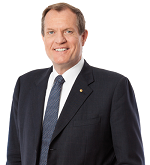 |
| Australia Tax Commissioner Chris Jordan |
We checked and everything is done correctly on our tax obligations, 9 drug companies said in separate submissions ahead of testimony on July 1 to an Australian Senate inquiry on tax avoidance.
The inquiry has zeroed in on drugmakers attempting to "back profits out" of Australia through a combination of transfer pricing and royalty payments to subsidiaries in other countries, according to the Sydney Morning Herald, adding that Tax Commissioner Chris Jordan said at a hearing earlier this month that some pharmaceutical companies were among the "more aggressive [on] transfer pricing."
But in what the Sydney Morning Herald said were "strikingly similar submissions" the majority of companies, which included Johnson & Johnson ($JNJ), Pfizer ($PFE) and AstraZeneca ($AZN), among others, declared an effective tax rate above the mandatory 30% company rate.
The companies insisted all international transactions are taken at "arm's length" and each had an effective and open relationship with the Australian Tax Office, the Sydney Morning Herald said.
However, the hearing is expected to challenge whether tax payments jibe with sales via Australia's Pharmaceutical Benefits Scheme, under which according to Sydney Morning Herald owner Fairfax Media, saw the top pharmaceutical suppliers reach AU$4.8 billion in revenue last year, but pay AU$53 million in tax.
Citing Johnson & Johnson, which paid just AU$20.7 million in tax in Australia in 2013, the Sydney Morning Herald said the company defended its overall record.
Johnson & Johnson has a "longstanding approach to corporate governance and paying the correct amount of tax based on a strong global culture of transparency, ethical behavior, integrity and respect," the company said in its submission, according to the Sydney Morning Herald.
"For J&J worldwide, the entrepreneurial activities associated with research and development and manufacturing are performed and borne by J&J companies outside Australia. The profit margins earned by JJPL companies [Australia] for the distribution functions performed in Australia … provides fair economic return determined under arm's length principles and in accordance with the Organization for Economic Cooperation and Development (OECD) transfer pricing guidelines," it said.
The newspaper said that Pfizer, which supplies Lipitor through the PBS among other drugs, noted a major hit from the loss of patent exclusivity.
"To put this into context, Lipitor, the biggest selling product in pharmaceutical history, began facing generic competition in 2012. Since then, annual revenue derived from Lipitor has dropped by approximately 95%, from AU$700 million to approximately AU$40 million," Pfizer said in its submission, according to the newspaper.
The Senate committee drew headlines when it cross-examined tech giants Google ($GOOG), Apple ($AAPL) and Microsoft ($MSFT) on the same issue earlier in the year.
"The numbers just don't add up," Committee chairman Sam Dastyari was quoted as saying by the newspaper. "Despite record sales and revenue, profit-shifting means their 'reported profit' is minuscule."
- here's the story from the Sydney Morning Herald
- and the notice from parliament